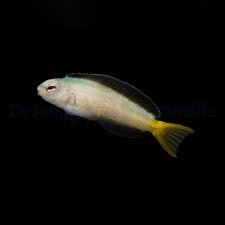The Significance of Dragons in Feng Shui Rituals in Chinese Culture
The Chinese dragon (龙, lóng) has been a central figure in Chinese cosmology, mythology, and spirituality for thousands of years. Unlike Western dragons, which are often depicted as fearsome creatures, the Chinese dragon is a symbol of wisdom, power, prosperity, and balance. In Feng Shui (风水)—the ancient Chinese practice of harmonizing humans with their surrounding environment—dragons play an essential role in directing and enhancing the flow of Qi (气), or life energy.
From imperial palaces to modern homes, dragon imagery is frequently used in rituals, architecture, and everyday objects to attract good fortune, ward off negative energy, and maintain cosmic harmony. This article explores the deep connection between dragons and Feng Shui, their role in different rituals, and how they are used to influence energy dynamics in personal and public spaces.
1. The Role of Dragons in Feng Shui Philosophy
1.1 The Dragon as a Cosmic Force
In traditional Chinese belief, dragons are associated with the five elements (Wu Xing, 五行):
- Wood (木) – Growth and vitality
- Fire (火) – Passion and transformation
- Earth (土) – Stability and protection
- Metal (金) – Strength and discipline
- Water (水) – Wisdom and adaptability
Among these, dragons are most closely linked with Water, as they are believed to control rain, rivers, and seas, influencing prosperity and agricultural success.
1.2 The Dragon as a Symbol of Yang Energy
- In Feng Shui, energy is classified into Yin (阴, passive, feminine) and Yang (阳, active, masculine).
- The dragon represents Yang energy, bringing strength, action, and positive momentum to a space.
- To maintain balance, dragons are often paired with the Phoenix (凤, fèng), which embodies Yin energy.
2. The Dragon’s Positioning in Feng Shui Rituals
2.1 The Importance of the Azure Dragon (青龙, Qīnglóng) in the Four Celestial Animals
In Feng Shui, four celestial animals are associated with the cardinal directions:
- Azure Dragon (青龙, Qīnglóng) – East (Bringer of prosperity and power)
- White Tiger (白虎, Báihǔ) – West (Protector against harm)
- Black Tortoise (玄武, Xuánwǔ) – North (Symbol of endurance and longevity)
- Vermilion Bird (朱雀, Zhūquè) – South (Bringer of fame and opportunities)
For optimal Feng Shui, the dragon’s side (east) should be higher than the tiger’s side (west) in landscapes and architecture, ensuring dominance of Yang energy.
2.2 Placement of Dragon Symbols in Homes and Offices
- In the living room: Placing a dragon statue or artwork in the east enhances prosperity and authority.
- At the entrance: A dragon image facing the main door invites positive energy into the household.
- In offices: A dragon behind the desk symbolizes leadership and career advancement.
- In water features: Dragons are often placed near fountains or fish tanks to activate wealth energy.
2.3 Dragon Energy in Temples and Palaces
- Imperial palaces like the Forbidden City were designed with dragon motifs to amplify power and legitimacy.
- Daoist and Buddhist temples feature dragon carvings at entrances to protect sacred spaces.
- Ancient tombs often had dragon engravings to guide souls safely into the afterlife.
3. Feng Shui Rituals Involving Dragons
3.1 Dragon Dance for Energy Activation
One of the most well-known Feng Shui rituals involving dragons is the Dragon Dance (舞龙, wǔlóng), performed during Chinese New Year and major celebrations.
- This ritual awakens the dragon’s spirit, symbolizing the activation of good fortune for the coming year.
- The rhythmic movements of the dragon puppet mimic the flow of Qi, ensuring a smooth and prosperous future.
3.2 Dragon Statues for Protection and Wealth
- Gold dragon figurines are used in homes and businesses to attract financial success.
- Stone or bronze dragons are placed outside buildings to guard against negative energies.
- Red dragons symbolize power and leadership, often found in martial arts schools and government buildings.
3.3 The Dragon and the Dragon Gate Ritual
A legendary Feng Shui practice, the Dragon Gate (龙门, Lóngmén), refers to a mythical story where carp that successfully leap over the Dragon Gate transform into dragons.
- In business Feng Shui, the Dragon Gate represents achieving success and career breakthroughs.
- Placing carp and dragon imagery together in homes or offices is believed to boost ambition and financial gains.
3.4 Dragon-Inspired Feng Shui Cures
- Dragon Tortoise (龙龟, Lóngguī): A hybrid of a dragon and tortoise, symbolizing career stability and longevity.
- Pearl-Holding Dragon: A dragon clutching a pearl represents the pursuit of wisdom and knowledge.
- Dragon and Phoenix Pair: Used in marriage Feng Shui to promote harmony between couples.
4. The Dragon and Water: A Key Feng Shui Element
4.1 The Dragon’s Role in Water Feng Shui
Since dragons control rivers and rain, they are closely tied to water-related Feng Shui principles.
- Placing a dragon near water enhances financial luck and career success.
- Artificial ponds, fish tanks, and fountains with dragon imagery activate the wealth sector in a home.
4.2 The Dragon Veins in Geomancy
In traditional Chinese geomancy, mountain ranges are considered dragon veins (龙脉, lóngmài)—pathways of Qi flowing through the land.
- Cities, temples, and royal tombs were built along dragon veins to maximize prosperity and longevity.
- The location of Beijing’s Forbidden City was chosen based on the presence of a strong dragon vein.
5. The Influence of Dragons in Modern Feng Shui Practices
Even in the modern era, dragons remain a powerful Feng Shui symbol, influencing interior design, architecture, and business practices.
5.1 Dragon Designs in Modern Architecture
- Skyscrapers in Hong Kong and Shanghai incorporate dragon-friendly Feng Shui designs.
- The famous Bank of China Tower in Hong Kong was built with sharp angles resembling a dragon’s claws, while nearby buildings were adjusted to maintain balance.
5.2 Business and Wealth Activation
- Many business owners place dragon figurines in offices and shops to enhance financial growth.
- Corporate logos featuring dragons (e.g., Chinese banks and trading companies) evoke power and prosperity.
5.3 Personal Feng Shui with Dragon Accessories
- Wearing jade dragon pendants is believed to enhance personal strength and protection.
- Dragon-themed furniture and decorations bring luck and positive Qi into living spaces.
Conclusion
The Chinese dragon is an enduring symbol of strength, power, and balance in Feng Shui philosophy. Whether placed in homes, temples, offices, or city landscapes, dragons play a crucial role in channeling positive energy, protecting against harm, and attracting wealth.
From traditional dragon dances to modern skyscraper designs, the dragon remains deeply woven into Chinese culture, ensuring prosperity and harmony for generations to come.
By understanding and applying Feng Shui dragon principles, individuals can harness the powerful Qi of the dragon to achieve success, protection, and a flourishing life.



